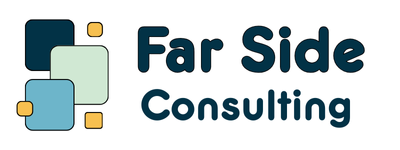Imagine a local autism therapy center that increased its client base by 30% simply by optimizing their online content with targeted keywords like "affordable ABA therapy options for children." You might wonder what specific strategies they employed to achieve such a remarkable outcome. By understanding the nuances of keyword research and incorporating effective terms that resonate with both parents and professionals, you can greatly enhance your digital marketing efforts. There's much to explore about how the right keywords can connect you with families in need of support.
Key Takeaways
- Focus on ABA therapy keywords like "Applied Behavior Analysis" and "ABA therapy techniques" to attract targeted traffic.
- Utilize long-tail keywords such as "best autism therapy strategies for toddlers" for niche audience targeting.
- Incorporate local SEO keywords like "autism therapy in [Your City]" to enhance local search visibility.
- Analyze competitor keywords to identify high-volume terms and content gaps for strategic improvements.
- Leverage tools like Google Keyword Planner and SEMrush to discover relevant keywords and monitor performance.
Understanding Keyword Research
When you immerse yourself in the world of digital marketing for autism therapy, understanding keyword research is crucial since it directly influences how effectively you can reach your audience. By identifying the right keywords, you can tailor your content to meet the needs of parents and caregivers searching for autism-related therapy information.
Start by using tools like Google Keyword Planner or SEMrush to discover popular search terms. These tools reveal what potential clients are typing into search engines, helping you align your content with their interests.
Look for long-tail keywords, which are more specific phrases that can attract targeted traffic. For example, instead of just "autism therapy," you might find "best autism therapy strategies for toddlers."
Additionally, analyze your competitors. See which keywords they're ranking for and consider how you can improve upon their content.
Don't forget to incorporate these keywords naturally into your website's copy, blog posts, and social media updates. This approach helps you enhance your visibility and guarantees that your message resonates with those seeking autism therapy.
Ultimately, effective keyword research can elevate your digital marketing strategy and connect you with the families who need your services the most.
Effective Keywords for ABA Therapy
Finding effective keywords for ABA therapy can greatly enhance your digital marketing strategy, building on the foundation laid by thorough keyword research.
Start by focusing on terms that directly relate to ABA methods, such as "Applied Behavior Analysis," "ABA therapy techniques," and "ABA therapy for children." These keywords resonate with parents and caregivers searching for targeted support.
Consider incorporating phrases like "benefits of ABA therapy" and "ABA therapy success stories." These not only capture interest but also establish your authority in the field.
You should also explore geographic modifiers, like "ABA therapy in [Your City]" or "local ABA services," to attract clients in your area.
Monitoring keyword performance is essential. Use tools like Google Analytics to understand which terms drive traffic and engagement.
This way, you can adjust your strategy over time, ensuring your content remains relevant.
Long-Tail Keywords Strategies
Utilizing long-tail keywords can greatly enhance your digital marketing efforts for autism therapy. These keywords are typically three or more words long and are more specific than general terms. By focusing on long-tail keywords, you can target a niche audience that's actively searching for specialized services, making it easier for your content to resonate with potential clients.
Start by brainstorming phrases that reflect the unique aspects of your therapy services. Think about the questions parents might ask, like "best autism therapy for toddlers" or "affordable ABA therapy options." Incorporate these phrases naturally into your website content, blog posts, and social media updates to improve search engine visibility.
Additionally, use tools like Google Keyword Planner or Ubersuggest to identify relevant long-tail keywords with lower competition. This strategy not only helps you attract more qualified traffic but also increases your chances of converting visitors into clients.
Remember to regularly analyze your keyword performance, adjusting your strategy based on what works best. By implementing a focused long-tail keyword strategy, you'll elevate your autism therapy digital marketing, connecting with families who need your services the most.
Local SEO Keywords Importance
Long-tail keywords can effectively draw in targeted traffic, but local SEO keywords play a significant role in connecting your autism therapy services with families in your community. When parents search for therapy options, they often include their location. By optimizing your website with local SEO keywords, you increase the chances of appearing in search results, making it easier for families to find you.
Local keywords, like "autism therapy in [Your City]" or "ABA therapy near me," not only help you attract nearby clients but also improve your relevance in local searches. This targeted approach helps you stand out from larger, national providers who may not have the same community connection.
Additionally, using local SEO keywords can enhance your Google My Business profile, driving more traffic to your site and increasing your chances of receiving inquiries. Remember, it's not just about attracting visitors; it's about reaching the right audience—those who need your services now.
Investing time in local SEO will help position your practice as the go-to resource for autism therapy in your area. By doing so, you can create meaningful connections and ultimately provide the support families are seeking.
Analyzing Competitor Keywords
Many successful autism therapy practices leverage competitor keyword analysis to enhance their own digital marketing strategies. By examining what keywords competitors are ranking for, you can uncover valuable insights into your target audience's search behavior. This process allows you to identify gaps in your own keyword strategy and discover new opportunities you might've overlooked.
Start by researching your competitors' websites and analyzing which keywords drive traffic to their pages. Look for high-volume keywords that align with your services but may not be overly competitive. This can give you a competitive edge and help you tailor your content to be more relevant to potential clients.
Don't just stop at identifying keywords. Assess the context in which these terms are used. Consider the content type—blogs, service pages, or FAQs—that's gaining traction. This understanding can guide you in creating content that resonates well with your audience.
Tools for Keyword Discovery
Once you've analyzed your competitors' keywords, it's time to explore the various tools available for keyword discovery. These tools can help you uncover high-potential keywords that resonate with your target audience in the autism therapy space.
Start with Google Keyword Planner, a free tool that provides search volume, competition levels, and keyword ideas based on your initial terms. It's invaluable for identifying keywords that not only drive traffic but also align with user intent.
Another great option is SEMrush, which offers extensive keyword analytics, including keyword difficulty scores and trend analysis. This helps you understand which keywords are worth your investment.
You can also check out Ubersuggest, which is user-friendly and provides keyword suggestions alongside SEO difficulty ratings. If you're looking for long-tail keywords, AnswerThePublic visualizes search queries that people are asking about autism therapy, giving you insights into user concerns.
Lastly, Moz's Keyword Explorer can help you prioritize keywords based on potential click-through rates and organic traffic estimates.
Conclusion
In the world of autism therapy digital marketing, choosing the right keywords can be the difference between being lost in the crowd and shining like a beacon. By focusing on effective, long-tail, and local keywords, you can connect with families seeking help. Don't forget to analyze your competitors and leverage powerful tools for discovery. Remember, you want to cast your net wide, but also reel in those specific audiences who truly need your services.

